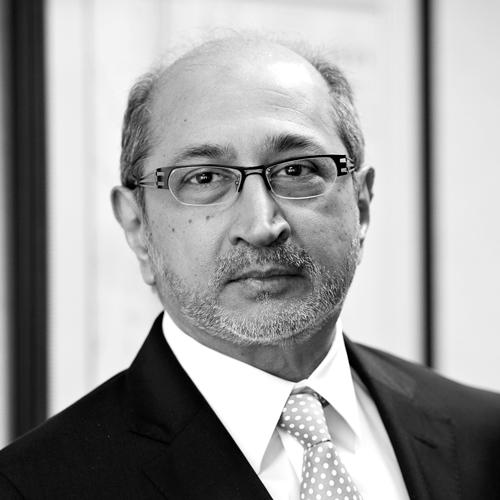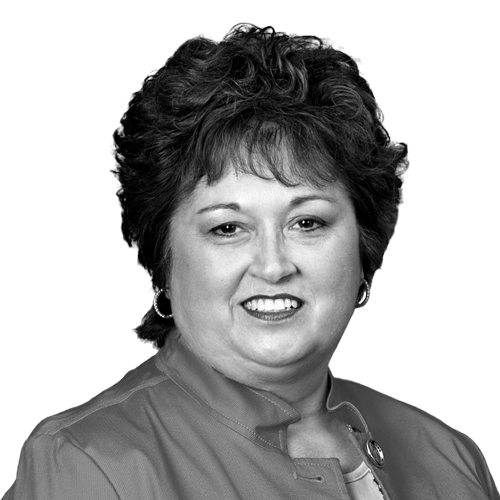“I’ve always had a great affection for the medical community, so it was a perfect mix for me. It wasn’t just insurance defense for huge companies; it was real people with real issues.
If I reach back, as a young attorney in my late 20s, the one case that made me say, ‘This is it for me,’ was a meeting with a chief of cardiothoracic surgery at one of our Boston institutions. I went there feeling very [much] in awe of whom I was about to talk with. I was nervous that I didn’t know about the medicine as much as he did. I got there, and we started talking about the case. He couldn’t have been more wonderful or thoughtful. Suddenly he started to cry. I looked at him, and it struck me at that moment how personally involved these doctors are with their patients.
“Suddenly he started to cry. I looked at him, and it struck me at that moment how personally involved these doctors are with their patients.”
They aren’t just scientists looking to get Nobel prizes. They try to cure people and save lives. I never appreciated the depth of their pain until that moment. That experience defined my career path and made me more empathetic. These aren’t Wall Street brokers. They’re not just playing the game every day. They’re actually using an incredible amount of education, experience, and heart to try to make people better. The lawsuit hits them with particular force because their whole life has been devoted to not making mistakes, to not being less than stellar. That grabbed me, and it’s never left me to this day. As I’ve continued with this career path, there are many more moments like this that create the core values of CRICO. We’re there to help doctors get back caring for patients and to saving lives.
I didn’t know I would end up at a company like this, initially. I graduated law school in 1990, and at that time, I was given a clerkship at the Massachusetts Supreme Judicial Court. I then went to Martin, Magnuson, McCarthy & Kenney, a prominent professional liability defense firm in Boston, which I loved. They were a wonderful group of attorneys, and I learned a great deal there about the ethical and committed practice of law. But I was young, and I wanted to go to Broadway. I’m a singer/actress, and I thought I wanted to go to New York to give it a shot. So I studied at the Juilliard School Evening [Division] for two years and worked in musical theater. I recognized that I couldn’t make enough money to live in New York City as an actress, so I accepted a position at a highly regarded medical malpractice insurance company in New York, FOJP Service Corporation. I stayed in New York for three years before coming back to Boston to work for CRICO.
The New York experience molded who I am today. My acting classes were where I learned about myself. Acting isn’t just a person standing in front of you, pretending to be somebody else and being “dramatic” to appeal to your emotions. You can’t be anybody legitimately, on stage or in a courtroom, if you don’t believe it. You’re just not going to connect with the audience. They’re going to know that you are acting, faking.
It’s the same in the courtroom when people pretend to care about their client or pretend to know the medicine. Our doctors walk into a courtroom, and they believe in themselves. And we believe in the care they provided. Otherwise the case settles.
When I’m looking at the clinicians we represent, I want to be very solid with that kind of authenticity. I’m asking them to tell me what they’re really feeling—tell me what they’re struggling with. I don’t want them to cry in my office, but I want them to tell me what’s really going on.
It’s the same when you’re managing a team like mine at CRICO. A superb staff. You’re asking people to go into battle, in a way. It’s so different from the actual military example, but you need the general and you need the whole team to pull back the people when things aren’t going the way you hoped. In that way, it’s very collaborative. No one is out there on their own.
In my fifteen years here, there’s no overreaching, broad management style that works with every single sector. I’m dealing with nurses, lawyers, doctors, and insurance professionals. My style shifts from one group to the other. I don’t micromanage. I would rather them be five days late on a report and focused on doing the right thing for the insured, who are going through this difficult time right now, than having them focused on a deadline. It’s all about getting a case to the best conclusion and supporting the client.
I’m a big believer in mediation when it’s appropriate. I’m not taking cases to trial for the sake of it. We try a lot of cases, but there are times when you have to sit back and say, ‘The right thing to do for the family and for the doctor is to settle the case.’ At the end of the day, it isn’t about us. It’s about taking the burden off of their shoulders and saying, ‘You don’t need to worry about it. You need to just keep living your life, which you’ve worked so hard to do, keep giving good care, and let it go.’ I know they never let it go. It lives with them day in and day out, but if we can ease that burden by even the slightest measure, I’m happy.
One case that really speaks to that, especially with disclosure and apology. It was back in 2007. Mary White, then a 45-year-old woman, had the misfortune of having a pathology report mistranscribed. She ended up with an unnecessary hysterectomy. We told her she had cancer, but she did not. Everyone was more than willing to provide all the appropriate information for mediation.
I met with her. She was reasonable but very upset, understandably. It was a big loss, but you can’t negotiate with an individual who doesn’t even know what to say about it. Initially, she didn’t want to talk to the doctor. She did not want to let him ‘off the hook’ in any way for what she was suffering. I got that. It was very fresh, and the idea that she was going to make him feel better because he apologized was angering. He was a pathologist who did all the right things, but then it got mistranscribed. He came to the mediation, and, in the end, they wanted to meet privately and had this very heart-to-heart forgiveness.
That’s the part I love.”


